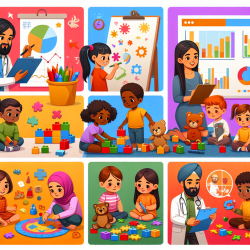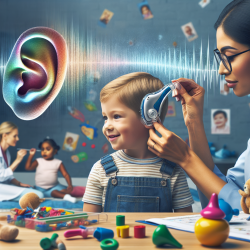Play therapy is a dynamic and effective approach to addressing various psychosocial difficulties in children. According to the research article "An Overview of Play Therapy" by Koukourikos et al. (2021), play therapy is particularly beneficial for preschool and school-age children experiencing transitions, emotional challenges, and behavioral issues. This blog will highlight key findings from the research and provide practical strategies for practitioners to enhance their play therapy skills.
Understanding the Importance of Play Therapy
Play is a fundamental aspect of childhood development, allowing children to express their emotions, thoughts, and experiences in a natural and engaging way. Unlike adults, children often struggle to verbalize their feelings and rely on play as a primary mode of communication. Play therapy leverages this natural inclination, using play as a therapeutic tool to help children process their emotions and develop coping mechanisms.
Key Findings from the Research
The research by Koukourikos et al. (2021) underscores the efficacy of play therapy in various contexts:
- Play therapy is effective for children in transition periods, such as after a divorce or loss.
- It helps children manage emotions, socialize, and address behavioral problems.
- Play therapy is beneficial for children who have witnessed domestic violence or experienced abuse.
- It supports children undergoing major surgeries or those with speech disorders.
- Children with developmental disorders, such as autism or ADHD, also benefit significantly from play therapy.
Implementing Play Therapy Strategies
Based on the research findings, here are some evidence-based strategies for practitioners to enhance their play therapy sessions:
1. Develop a Strong Therapeutic Relationship
Establishing a trusting and supportive relationship with the child is crucial. This involves being empathetic, non-judgmental, and genuinely interested in the child's experiences.
2. Use a Variety of Play Materials
Offer a range of toys and materials, such as sand, clay, dolls, and puzzles, to allow children to express themselves in different ways. The choice of materials should cater to the child's interests and developmental stage.
3. Encourage Free Expression
Allow children to lead the play sessions and express their feelings and thoughts freely. Avoid directing the play or imposing your own interpretations.
4. Reflect and Validate Emotions
Reflect the child's emotions and experiences back to them to help them understand and process their feelings. Validation of their emotions fosters a sense of safety and acceptance.
5. Collaborate with Other Professionals
Work closely with other therapists, teachers, and caregivers to provide a holistic approach to the child's development. Sharing insights and strategies can enhance the effectiveness of the therapy.
Encouraging Further Research
While the existing research highlights the benefits of play therapy, continuous exploration and study are essential for advancing the field. Practitioners are encouraged to stay updated with the latest research, attend workshops, and participate in professional development opportunities.
Conclusion
Play therapy is a powerful tool for addressing a wide range of emotional and behavioral issues in children. By implementing evidence-based strategies and fostering a supportive therapeutic environment, practitioners can significantly enhance their play therapy skills and create positive outcomes for their young clients. To read the original research paper, please follow this link:
An Overview of Play Therapy.










